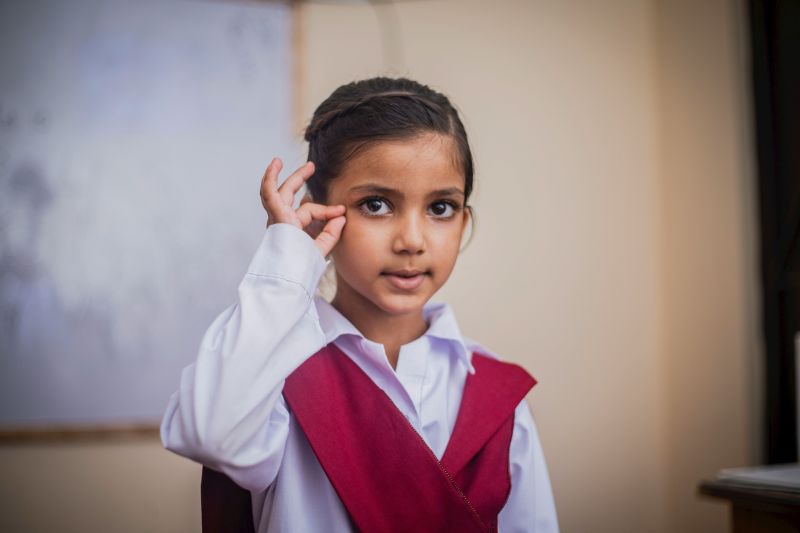
A young girl practices sign language. Photo by Assad Tanoli on Unsplash.
The landmark report released in late February is a response to a complaint filed by Deaf Aotearoa over the MoE’s lack of NZSL focused targets in education strategy.
Read the latest print edition of School News HERE
In 2019, the Ministry of Education produced a “Development Map” in consultation with the NZSL Board and stakeholders such as Deaf Aotearoa. The organisation believed the Map did not address long-term issues Deaf learners encounter with the provision of NZSL.
The report released by the ombudsman office found that the Ministry “unreasonably ommitted” key strategies like appropriate timeframes, accountability and targets which would make the goals “operational”. He also found that inadequate steps were taken toward outlining a budget, and there were a lack of “reasonable provisions” for stakeholder groups to check on the goals outlined by the Ministry of Education.
Recommendations to the Ministry include a revision of strategy, clearer and more frequent communication on redevelopment with relevant stakeholders and providing quarterly reports on the above recommendations.
In a press release, Deaf Aotearoa says they are “demanding immediate action” over the “systemic failures” of the Ministry to Deaf children. Deaf Aotearoa highlights that NZSL is crucial for Deaf children to learn on par with their hearing peers.
Chief Executive of Deaf Aotearoa, Lachlan Keating, said “the status quo is unacceptable, and tangible steps are required to urgently improve access to education in NZSL for Deaf children and ensure they have access to a bilingual curriculum, NZSL medium settings, and NZSL fluent teachers.
Keating also noted that NZSL is an official language of New Zealand alongside te reo Māori, and said the organisation would be pursuing a system for Deaf children akin to the model used for Māori medium education.
“This call to action resonates with the ongoing struggles faced by Deaf children in their daily schooling. Generations of Deaf people and their families have suffered and not had their rights realised – this is a human rights issue at its core.”
Deaf Children NZ backed Deaf Aotearoa’s statement. Spokesperson Willa Hand added “we want an education system that empowers Deaf children to thrive.
“We need to start afresh with a core team of experts who will rewrite Deaf education through a cultural lens, with guidance from international best practices.”
The much-delayed English draft curriculum is now out for consultation, generating discussion from teachers.
Research from AUT demonstrates arts, culture and recreation have positive impacts on all aspects of…
How effective has the school phone ban been in achieving its aims? Researchers from the…
School camps and excursions deliver hands on learning experiences, helping to consolidate classroom learning.
Innovations in AV technologies present new opportunities to engage with students. We look at how…
A new report from the University of Auckland’s Our Voices Project asks young people what…
This website uses cookies.